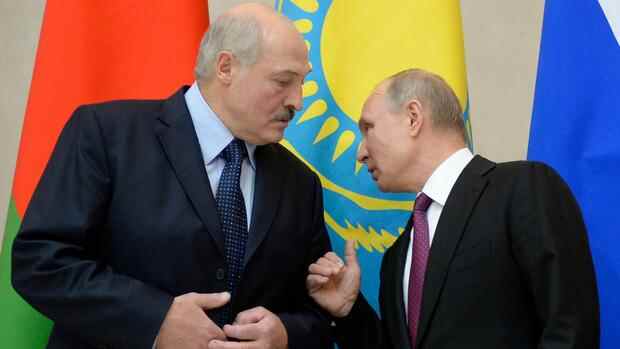According to Bertelsmann, freedom of expression has continued to decrease in many autocracies.
(Photo: dpa)
Berlin The Putin model is not the exception, but is becoming the rule worldwide. The international outcry over the Russian president’s autocratic power politics suggests that Putin is a lone wolf. However, the new Transformation Index of the Bertelsmann Foundation (BTI) teaches us otherwise: For the first time since 2004, the BTI has recorded more autocratic than democratic states. Of the 137 countries examined, only 67 are still democracies, and the number of autocracies has risen to 70.
The authors of the study speak of “creeping autocratization” and state: “In the past ten years, almost every fifth democracy has lost quality, including regionally important and once stable democracies.”
But oppression, abuse of power and restrictions on freedom of expression and assembly have also increased in many autocracies, it is said.
Autocratic rulers used the pandemic to further curtail fundamental rights and suppress critical voices. The authors write that corruption, clientelism and mismanagement by the established elites prevent economic development and social participation.
Top jobs of the day
Find the best jobs now and
be notified by email.
The findings of the Bertelsmann study correspond to the results of the Economist Intelligence Unit (EIU). The British think tank recently found that only around 8.4 percent of the world’s population lives in fully democratic countries, but more than a third of the people are ruled by authoritarian regimes.
Bertelsmann sees the main reason for the retreat of democracy in the mostly “one-sided concentration of the political elite on securing political and economic power”, to which all social development is subordinated.
“Using authoritarian tactics instead of solving problems is particularly devastating in democratic societies,” said Sabine Donner, democracy expert at the Bertelsmann Stiftung. The carelessly playful trust can only be restored with difficulty.
Tunisia shows: Democracy takes two steps forward and one step back
However, the Foundation has also found some positive examples that go against the general trend. For example, in Armenia, Sri Lanka and Tunisia there has been a regime change in favor of democracy in the past ten years. However, the current development in Tunisia shows that there are always steps backwards.
The “Arab Spring” began in Tunisia, but today President Kaïs Saïed is seizing more and more power and undermining democracy. However, the researchers also noted a declining quality of democracy in countries such as Brazil, Bulgaria, India, Serbia, Hungary and Poland.
More: MSC boss Ischinger warns: democracies feel increasingly helpless
